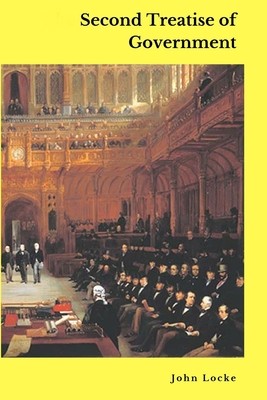
- We will send in 10–14 business days.
- Author: John Locke
- Publisher: Lulu.com
- ISBN-10: 1365285960
- ISBN-13: 9781365285967
- Format: 15.2 x 22.9 x 0.7 cm, softcover
- Language: English
- SAVE -10% with code: EXTRA
Reviews
Description
John Locke argues that all men are created equal in the state of nature by God. In his seminal essay Second Treatise of Government he outlines an entire theory of civil society. Locke explores a number of themes such as conquest and slavery, property, representative government, and the right of revolution. He argues that the protection of life, liberty, and property can be achieved by a parliamentary process that protects, not violates, one's rights.
- Author: John Locke
- Publisher: Lulu.com
- ISBN-10: 1365285960
- ISBN-13: 9781365285967
- Format: 15.2 x 22.9 x 0.7 cm, softcover
- Language: English English
John Locke argues that all men are created equal in the state of nature by God. In his seminal essay Second Treatise of Government he outlines an entire theory of civil society. Locke explores a number of themes such as conquest and slavery, property, representative government, and the right of revolution. He argues that the protection of life, liberty, and property can be achieved by a parliamentary process that protects, not violates, one's rights.


Reviews